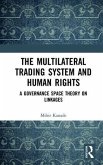Using interviews and a unique database of trade association activities, this book concludes that increasing self-regulation renders both government deregulation programmes and international trade negotiations ineffective in opening Japanese markets. The implications of self-regulation for Japanese industry are mixed: while internationally competitive firms can use self-regulation to reduce competition at home in order to compete more forcefully abroad, some domestic industries, such as the financial sector, may suffer from increased self-protection.
The Japanese government is becoming less involved in shaping industrial policy--but what does this imply for the openness of Japanese markets to foreign competition? In an extensive study of 'post-development' Japan, Ulrike Schaede argues that, contrary to what many have suggested, the reduced role of government regulation may not result in more open markets. Instead, as has happened throughout Japanese history, deregulation and the recession of the 1990s have once again led Japanese trade associations to assume important regulatory functions of their own.
Hinweis: Dieser Artikel kann nur an eine deutsche Lieferadresse ausgeliefert werden.
The Japanese government is becoming less involved in shaping industrial policy--but what does this imply for the openness of Japanese markets to foreign competition? In an extensive study of 'post-development' Japan, Ulrike Schaede argues that, contrary to what many have suggested, the reduced role of government regulation may not result in more open markets. Instead, as has happened throughout Japanese history, deregulation and the recession of the 1990s have once again led Japanese trade associations to assume important regulatory functions of their own.
Hinweis: Dieser Artikel kann nur an eine deutsche Lieferadresse ausgeliefert werden.








